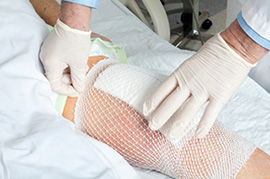Fungal Superbug now “Serious Global Health Threat”
Fungus candida auris is causing a serious global health threat due to recent outbreaks and a difficulty in treating it.

Infections can cause serous damage, including amputation, organ failure, and even death. Diagnosing an infection is a critical part of a doctor’s job and can be done by visualizing the infected part (is it red, swollen, and painful?); considering systemic symptoms such as a fever; and carefully reviewing lab results (for example, a high white-blood count). Early diagnosis of infections is crucial in patients who are diabetic or have a compromised immune system.
One of the most serious infections is sepsis or septicemia, a condition where an infection spreads to the blood stream and can affect the entire body. Diagnosing and treating an infection early can avoid organ failure, loss of limbs, and death resulting from sepsis.
Sharon went to a local emergency room with flank pain. She was diagnosed as having kidney stones and sent home to wait for them to pass. Within 48 hours she returned to the ER with severe pain and a fever. Over the next several hours, the ER providers and doctors at the hospital (where she was admitted) struggled with a diagnosis, but finally concluded she had developed sepsis arising from a blocked ureter from the kidney stone. The lost hours before a definitive diagnosis was made delayed surgery to unblock the ureter, and her sepsis (blood poisoning from infection) became severe.
Sharon required amputations of both legs and both arms from damage caused by the sepsis. The case was complex because of the involvement of numerous physicians as well as the hospital. Eventually, a settlement was reached that will provide adequate care over her lifetime.
Fungus candida auris is causing a serious global health threat due to recent outbreaks and a difficulty in treating it.
A recent article published in the Seattle Times details how Seattle-area hospitals fared in recent a Consumer Reports analysis of a hospital’s ability to prevent patients from acquiring infections.
It is not uncommon for a patient who undergoes surgery or any invasive procedure to develop an infection. Although operating rooms are meant to provide a sterile field for a surgery, there are many ways in which a bacterial organism can invade the body through an opening.

